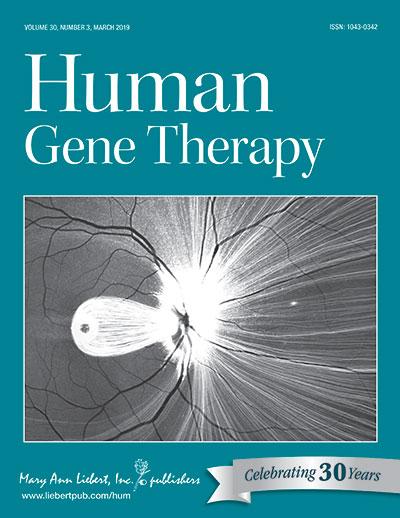
Credit: Mary Ann Liebert Inc., publishers
New Rochelle, NY, March 28, 2019–Researchers have shown that cancer immunotherapy targeting the tumor biomarker epithelial cell adhesion molecule (EpCAM) is safe and non-toxic in mice and can significantly delay tumor formation and growth. EpCAM is over-expressed in various tumor types, circulating tumor cells, and tumor stem cells, giving these findings broad implications. The study design and results are published in a Special Issue on Immune Gene Therapy in Human Gene Therapy, a peer-reviewed journal from Mary Ann Liebert, Inc., publishers. Click here to read the full-text article free on the Human Gene Therapy website through April 28, 2019.
Adi Barzel, PhD, Tel-Aviv University and President of The Israeli Society of Gene and Cell Therapy is Guest Editor of the Special Issue. The full issue will be published in April 2019.
The article entitled “Preclinical Evaluation of Chimeric Antigen Receptor-Modified T Cells Specific to EpCAM for Treating Colorectal Cancer” was coauthored by Wei Wang and a team of researchers from West China Hospital, Sichuan University and Collabora-tive Innovation Center for Biotherapy (Chengdu, China) and First Affiliated Hospital of Chongqing Medical University (China). The researchers produced third generation chi-meric antigen receptor-modified T (CAR-T) cells. They used a lentiviral vector to target the cells specifically to EpCAM.
“CAR-T cell technology represents a breakthrough therapy for patients with B cell leu-kemias and lymphomas, but progress with solid tumors has, unfortunately, been much slower,” says Editor-in-Chief Terence R. Flotte, MD, Celia and Isaac Haidak Professor of Medical Education and Dean, Provost, and Executive Deputy Chancellor, University of Massachusetts Medical School, Worcester, MA. “This pivotal study in patients with colorectal cancer demonstrates that targeted cancer immunotherapy could indeed have a role in this very common malignancy.”
###
About the Journal
Human Gene Therapy, the Official Journal of the European Society of Gene and Cell Therapy, British Society for Gene and Cell Therapy, French Society of Cell and Gene Therapy, German Society of Gene Therapy, and five other gene therapy societies, is an authoritative peer-reviewed journal published monthly in print and online. Led by Editor-in-Chief Terence R. Flotte, MD, Celia and Isaac Haidak Professor of Medical Education and Dean, Provost, and Executive Deputy Chancellor, University of Massachusetts Medical School, Human Gene Therapy presents reports on the transfer and expression of genes in mammals, including humans. Related topics include improvements in vector development, delivery systems, and animal models, particularly in the areas of cancer, heart disease, viral disease, genetic disease, and neurological disease, as well as ethical, legal, and regulatory issues related to the gene transfer in humans. Its companion journals, Human Gene Therapy Methods, published bimonthly, focuses on the application of gene therapy to product testing and development, and Human Gene Therapy Clinical Development, published quarterly, features data relevant to the regulatory review and commercial development of cell and gene therapy products. Tables of contents for all three publications and a free sample issue may be viewed on the Human Gene Therapy website.
About the Publisher
Mary Ann Liebert, Inc., publishers is a privately held, fully integrated media company known for establishing authoritative peer-reviewed journals in many promising areas of science and biomedical research, including Nucleic Acid Therapeutics, Tissue Engineering, Stem Cells and Development, and Cellular Reprogramming. Its biotechnology trade magazine, GEN (Genetic Engineering & Biotechnology News), was the first in its field and is today the industry’s most widely read publication worldwide. A complete list of the firm’s 80 journals, books, and newsmagazines is available on the Mary Ann Liebert, Inc., publishers website.
Media Contact
Kathryn Ryan
[email protected]
Original Source
https:/
Related Journal Article
http://dx.




